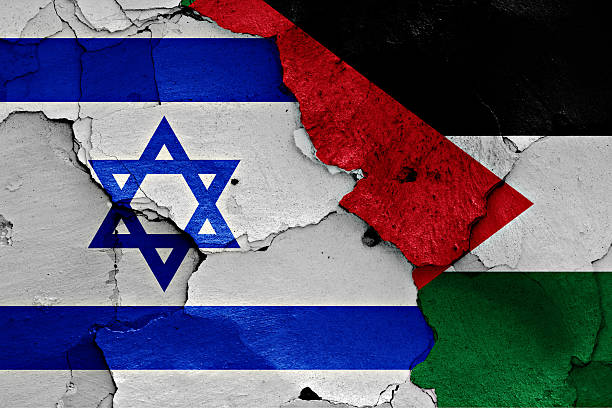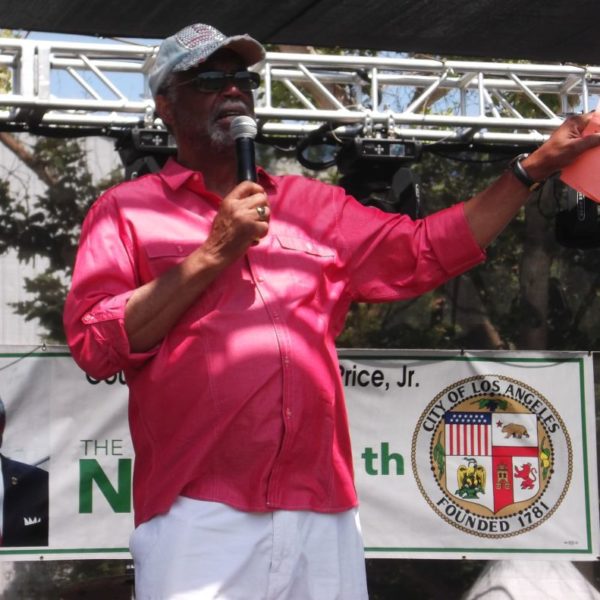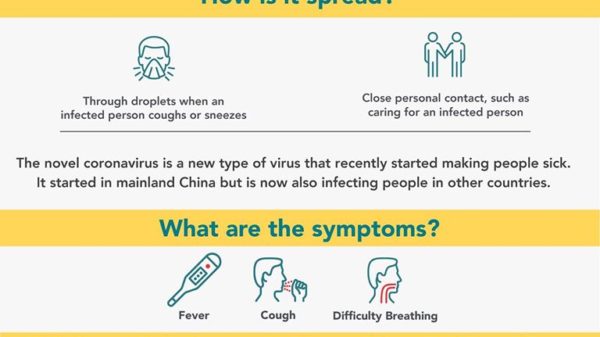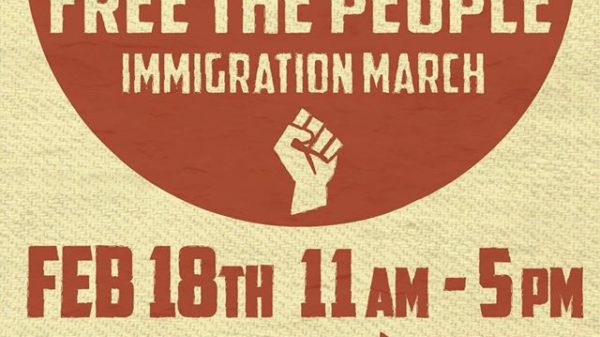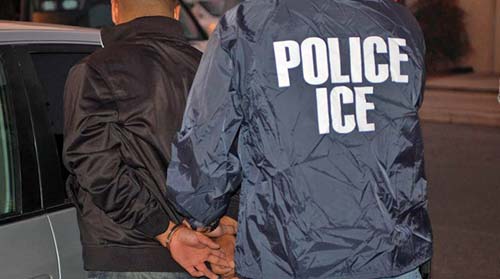Magazine, The Immigrant Experience
Amidst the rapidly escalating Israel-Hamas conflict, global apprehension grows as the world fears that this battle may be the spark igniting a larger, unpredictable regional conflagration. Complicating this volatile Middle Eastern situation is the inundation of harrowing imagery on social media, carefully crafted to stoke anger and assign blame. As the global community grapples with this grim reality, it is essential to extend our focus beyond the immediate region, a mission that our briefing, aptly titled “Deepening the Fault Lines,” endeavors to accomplish.
The conflict in Israel is not capturing global attention due to geopolitical intricacies, but rather for its sheer intensity. Reports from experts indicate that more Israelis have lost their lives during the initial Hamas assault than on any other day in Israel’s history, surpassing the combined casualties of all previous conflicts. Alarmingly, an estimated 150 individuals are believed to be held hostage by Hamas militants. Gaza, along with its vulnerable civilian population, bears the brunt of relentless destruction, escalating by the hour. The looming specter of a ground invasion offers a scant refuge for beleaguered Palestinian civilians trapped in an ever-tightening state of siege.
Nevertheless, it is imperative to understand that this Middle East crisis is not isolated. Within the United States, a troubling surge of hatred and bigotry targets both Jews and Muslims. Scholars studying the far-right movement have sounded the alarm regarding the unsettling ascent of antisemitic and Islamophobic rhetoric into mainstream discourse. The primary objective of this briefing is to embark on an expedition through the roots of the Israel-Hamas conflict and fathom the profound implications it bears for communities in the United States, communities already grappling with the ramifications of hate. This discussion further endeavors to assess whether the eruptions of violence in the Middle East hold the potential to inflame existing tensions among the diverse tapestry of American communities.
An Ethnic Media Services (EMS) briefing brought together a panel of experts comprised of individuals armed with profound insights into this multifaceted issue:
- Jamal Dajani, a Palestinian-American Journalist and distinguished, award-winning producer, co-founded Arab Talk Radio and served as a member of the San Francisco Human Rights Commission from 2009 to 2011.
- Brian Levin, Esq.: The eminent Founder of the Center for the Study of Hate and Extremism, coupled with the distinguished title of Professor Emeritus of Criminal Justice at California State University, San Bernardino. His expertise shines a piercing light on the dynamics of hate and extremism in the United States.
- Estee Chandler: A resolute organizer for the Los Angeles Chapter of Jewish Voice for Peace (JVP), a nationwide grassroots organization spanning 35 chapters, unwavering in its criticism of Israel’s policies. Chandler furnishes invaluable insights into the organization’s stance on the ongoing conflict.
- Fatin Jarara: A dedicated Palestinian community organizer hailing from New York, with an extensive two-decade-long commitment to the Al-Awda NY: Palestine Return Coalition. Her vantage point encompasses a unique perspective on the historical and fundamental causes of the conflict.
The insights unveiled by Jamal Dajani, a Palestinian-American journalist, and acclaimed producer, provide invaluable perspectives on the ongoing Israeli-Palestinian conflict. His frustration at the scarcity of reasonable voices striving to quell this escalating turmoil is palpable. A stern spotlight is cast on the United States and its current administration, which some argue, has sanctioned Israel’s military actions in Gaza.
Dajani underscored the urgency of the situation, drawing attention to the unparalleled and sustained devastation besieging Gaza. His concerns extended beyond the conflict’s immediacy to the perilous potential of involving other regional actors, a concern accentuated by the conspicuous positioning of a US aircraft carrier near Gaza. Dajani challenged the facile characterization of this conflict as an ethnic or religious discord, imploring us to perceive it as a territorial and colonial dispute, deeply entangled in historical grievances. As people are uprooted from their homes, akin to the Nakba in 1948, the ensuing perception of newcomers as invaders emerges as an inevitable consequence. Dajani raised the alarm regarding the surge of Islamophobia and anti-Semitism within the United States, expressing his disquiet that international conflicts like the Israeli-Palestinian conundrum could be exploited by white supremacists to proliferate hatred and bigotry.
Brian Levin, Founder of the Center for the Study of Hate and Extremism and Professor Emeritus of Criminal Justice at California State University, San Bernardino, provided further context. Levin’s recent retirement didn’t deter him from actively engaging in this critical issue. He emphasized the vital importance of understanding how international conflicts and terrorism correlate with patterns of hate crime in the US.
Levin’s research illuminated a disturbing trend. He discussed the elongation of spikes in hate crimes following catalytic incidents. To illustrate, he pointed to the post-9/11 period, during which hate crimes swiftly decreased after President Bush urged tolerance towards Muslims. However, in recent years, the spikes are becoming more extended and lingering, indicating a worrisome trend.
He specifically examined anti-Muslim and anti-Jewish hate crimes, demonstrating sharp increases in recent years. Anti-Muslim hate crimes, in particular, have seen a concerning 45% rise in major US cities in 2021. This surge has been attributed to increased online invective and the influence of terrorism, highlighting the complex interplay of factors driving hate crimes.
Levin highlighted that while the Israel-Hamas conflict has political dimensions, extremist elements have been using religious motivations to justify violence. This complicates the situation, as it perpetuates the idea of a religious conflict, exacerbating divisions.
In a poignant note, Levin underlined the tragic events of the recent synagogue attack, which marked the deadliest single-day massacre of Jews since the Holocaust. This underscores the need for a concerted effort to promote peace and unity.
Estee Chandler, a representative of Jewish Voice for Peace, Los Angeles Chapter, shared her perspectives on the Israeli-Palestinian conflict and its impact on her work and relationships among different groups. She acknowledged the organization’s support for peace activists in both Israel and the Palestinian territories.
Chandler initiated her presentation by expressing her concerns regarding the statistics on anti-Semitic incidents, which primarily stem from the Anti-Defamation League (ADL). She emphasized that the ADL, as a Zionist organization, employs criteria for identifying anti-Semitic incidents that may not align with broader perspectives. Chandler highlighted the need for more comprehensive data.
As a proud Jewish American with an Israeli family, Chandler conveyed her fears and grief for loved ones affected by the ongoing conflict. She reiterated her commitment to a future characterized by the sanctity of every life and the coexistence of all people with freedom and safety.
Chandler provided essential context regarding Gaza’s situation, clarifying that the Israeli military blockade of Gaza has been in place for almost 16 years, with Israel merely shifting its defenses to the perimeter. She also emphasized that the Israeli occupation and apartheid have been recognized by numerous human rights organizations.
In addressing recent developments, Chandler underscored the escalation of Israeli military occupation with a focus on far-right policies. She described violent expulsions, home demolitions, military raids, and the continued siege, culminating in a crisis exacerbated by the storming of holy Muslim sites in Jerusalem. She noted the underreporting of these incidents in mainstream media.
The current crisis in Gaza and the mass expulsion of its population were subjects of grave concern for Chandler, who cautioned against the use of the term “genocide” lightly. She highlighted the urgent need to bring attention to the situation unfolding in Gaza.
Chandler then addressed the impact of the conflict on her work and relationships between ethnic groups in the United States. She detailed how on college campuses and in local communities, student groups and activists supporting justice for Palestinians face challenges such as doxxing and suppression of their organizing efforts. She also expressed the importance of factual reporting and providing a platform for Palestinians to share their experiences, underscoring the attempts to suppress Palestinian voices and education about the history of the conflict.
Fatin Jarara, a New York-based Palestinian community organizer associated with Al-Awda NY: Palestine Return Coalition, presented her insights on the impact of conflicts on Palestinians worldwide. Her presentation encompassed several key points.
Firstly, she expressed concerns about the framing of the Israeli-Palestinian conflict, emphasizing that characterizing it as “Israel versus Hamas” oversimplifies the situation. Jarara argued that it is primarily a matter of an Israeli occupation imposed on an indigenous population, extending beyond a mere confrontation with a militant group.
She went on to address the role of the Anti-Defamation League (ADL) and its impact on shaping discussions around racism and anti-Semitism. While acknowledging the ADL’s use as a source in diversity, equity, inclusion, and justice work, Jarara raised alarms about its alleged anti-Muslim and anti-Palestinian positions, among others. She urged for a critical examination of the ADL’s influence.
Jarara also discussed the definition of anti-Semitism promoted by the International Holocaust Remembrance Alliance (IHRA), which has been adopted by various governments and institutions in the United States and Europe. She highlighted that this definition deems any criticism of the state of Israel as anti-Semitic, potentially leading to criminal offenses. She stressed the implications of such a definition for freedom of speech.
The power of rhetoric and language was a central theme in her presentation. Jarara underlined the selective application of terms such as “terrorism” in the Israeli-Palestinian conflict and its profound impact on shaping perceptions and opinions. She emphasized the need for a nuanced understanding of language’s significance in shaping narratives.
Furthermore, Jarara addressed the hostile environment for Palestinian rights advocacy in the United States. She cited specific incidents, such as a councilwoman displaying a gun at a Palestine-related event, to illustrate the challenges faced by those seeking to express their views freely and engage in peaceful protests. She also warned against making sweeping generalizations about entire communities based on individual incidents.
Jarara underscored the role of media in shaping public opinion, particularly in the United States, and argued that certain narratives are deeply entrenched, rendering extensive promotion of particular viewpoints unnecessary.
Lastly, she emphasized that the United States has not consistently supported justice in liberation movements. She compared the Palestinian situation to that of other historically oppressed groups, such as Indigenous people and their respective movements.
In a world that is growing increasingly interconnected, it is vital to recognize that international conflicts, such as the ongoing crisis in Israel, have far-reaching implications that extend beyond their immediate regions. The fear of a broader regional war sparked by this conflict is real, and the distressing images on social media only add fuel to the flames of anger and blame.
#Israel #Hamas #Conflict #US #HateCrimes #Tensions #InterEthnicRelations #Peace #Geopolitics #MiddleEast #HumanRights #CommunityImpact

